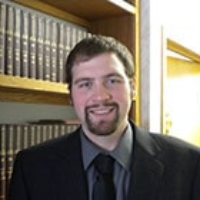Greenwald Juvenile Law Lawyer, Minnesota
Not enough matches for Greenwald Juvenile Law lawyer.
Below are all Greenwald Criminal lawyers.
Jason Robert Sellnow
✓ VERIFIEDCriminal, Accident & Injury, Divorce & Family Law, Car Accident
An experienced Attorney who practices in the areas of Estate Planning, Trusts, Probate, Real Property transactions and title work, Civil Litigation, F... (more)
Michael A. Bryant
✓ VERIFIEDCriminal, Litigation, Personal Injury, Wrongful Death, Car Accident
Our experienced personal injury lawyers regularly represent clients suffering from minor, serious, and catastrophic injuries. We have extensive experi... (more)
Blake D. Lubinus
✓ VERIFIEDCriminal, Divorce & Family Law, Business, Estate, Litigation
Born in South Dakota, raised in Iowa, and now practicing law in Minnesota, Blake is the very definition of a Midwestern lawyer. He attended the Univer... (more)
John Timothy Lund
Welfare, Construction, Family Law, Criminal, Consumer Bankruptcy
Status: In Good Standing
FREE CONSULTATION
CONTACTGreg A Engel
Criminal, Divorce & Family Law, Personal Injury, Divorce
Status: In Good Standing Licensed: 34 Years
Ellen Kuhler Kappmeyer
Juvenile Law, Landlord-Tenant, Lawsuit & Dispute, Immigration
Status: In Good Standing Licensed: 16 Years
Karen Hoffman
Commercial Real Estate, Wills & Probate, Divorce, Juvenile Law
Status: In Good Standing Licensed: 13 Years




